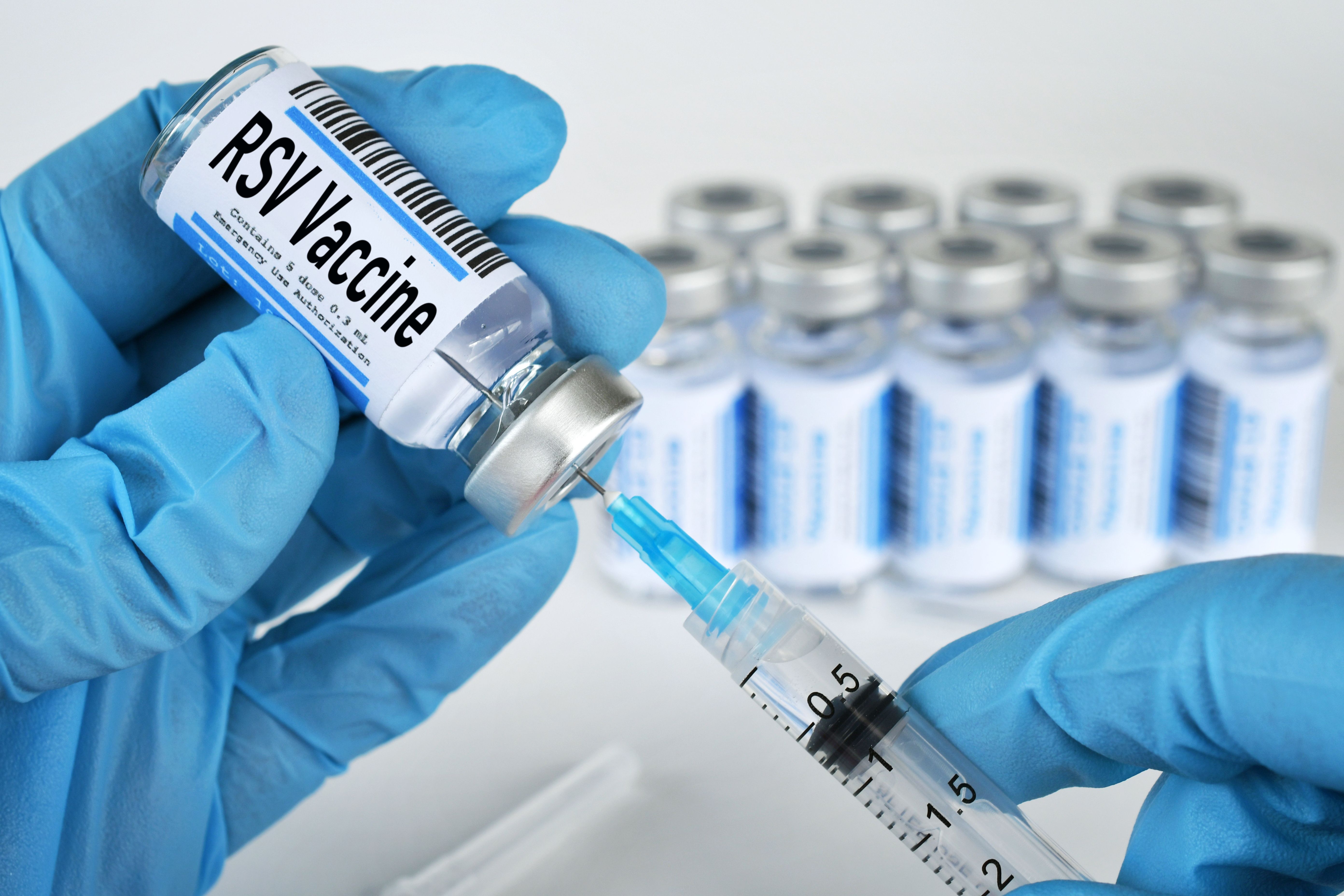- Center on Health Equity & Access
- Clinical
- Health Care Cost
- Health Care Delivery
- Insurance
- Policy
- Technology
- Value-Based Care
Simultaneous RSV, Influenza Vaccination Found Safe in Patients With High-Risk Heart Failure
Vaccination against seasonal influenza and respiratory syncytial virus (RSV) in patients with high-risk heart failure was found safe with low incidence of mild adverse events (AEs).
For the first time, a study has shown simultaneous vaccination against seasonal influenza and respiratory syncytial virus (RSV) was safe and associated with a low incidence of mild adverse events (AEs) in patients with high-risk heart failure.

This prospective, single-center, open-label study is published in Vaccine.1
“Although administering these vaccines separately had an evident positive effect on patients, simultaneous vaccination provides us with new benefits – 1 visit instead of 2 reduces patient contact with health care, which is beneficial for delicate patient health and decreases the amount of time dedicated to a single patient for the physician,” wrote the researchers of the study. “At the same time our research demonstrates that simultaneous vaccination does not pose a greater risk to the patient, and importantly, high-risk patients can also be vaccinated.”
Infections are known to cause decompensation of heart failure, which can lead to life-threatening acute systemic disorder (sepsis) and septic shock.2 While seasonal influenza and pneumococcal are the only guideline-recommended vaccinations for patients with heart failure, efforts are underway to increase the utilization of vaccines in high-risk populations.
A recent study found that COVID-19 vaccination was associated with reduced risk of heart failure by as much as 55% and blood clot formation by up to 78% after COVID-19 infection.3
In the present study, the researchers aimed to evaluate the safety profile of simultaneous vaccination for influenza and RSV in patients with high-risk heart failure.
The study included patients with either advanced heart failure, hospitalization for acute heart failure within the last 18 months, and/or left ventricle ejection fraction of 35% or greater with a daily diuretic dose of 80 mg or more of furosemide or its equivalent.
More than 800 patients were screened to identify those who met the high-risk definition, in which 364 initially met the criteria and were invited for a clinical visit. Of these patients, 105 underwent simultaneous vaccination against influenza (Vaxigrip Tetra, season 2023/2024, Sanofi) and RSV (Arexvy, GSK) from September 15, 2023, to November 17, 2023. Any AE’s were collected on the fourth-day post-vaccination.
Overall, the vaccination was well tolerated, with the most common reaction being injection site pain (63%). General symptoms occurred in 33% of patients, including fatigue (23%), myalgia (12%), and headache (9%). Additionally, 6% of patients had Grade 3 reactions, with a few experiencing temperature elevation or flu-like symptoms. No heart failure exacerbations, hospitalizations, or deaths were reported within a week post-vaccination.
However, the researchers acknowledged some limitations to the study, including having a restricted patient population, an open-label design, and that the study power was calculated to detect the long-term difference in study endpoints, but only the early safety profile of simultaneous vaccination was reported. Therefore, the researchers believe a longer period of observation and a laboratory assessment is needed to expand insight into the safety profile of the vaccines in this patient population.
Despite these limitations, the researchers believe the study supports simultaneous vaccination against influenza and RSV among patients with high-risk heart failure.
“We have demonstrated for the first time that simultaneous vaccination against seasonal influenza and RSV in high-risk heart failure patients was safe and associated with a low incidence of mild adverse events,” concluded the researchers.
References
1. Biegus J, Szenborn L, Zymlinski R, et al. The early safety profile of simultaneous vaccination against influenza and respiratory syncytial virus (RSV) in patients with high-risk heart failure. Vaccine. 2024;42(12):2937-2940. doi:10.1016/j.vaccine.2024.03.060
2. Mesquita ET. Infections in heart failure - impact on mortality. Arq Bras Cardiol. 2018;110(4):371-372. doi:10.5935/abc.20180067
3. Klein H. Study says COVID-19 vaccines can reduce risk of heart failure, blood clots following infection. March 24, 2024. Accessed June 18, 2024. https://www.ajmc.com/view/study-says-covid-19-vaccines-can-reduce-risk-of-heart-failure-blood-clots-following-infection
The Breakdown: Breast Cancer Research Awareness Day
August 19th 2025Breast cancer is the second most common cancer among women and the second leading cause of cancer-related deaths among women in the US. In light of Breast Cancer Research Awareness Day, The American Journal of Managed Care® breaks down the most recent advancements in breast cancer prevention, screening, and therapies.
Listen
Politics vs Science: The Future of US Public Health
February 4th 2025On this episode of Managed Care Cast, we speak with Perry N. Halkitis, PhD, MS, MPH, dean of the Rutgers School of Public Health, on the public health implications of the US withdrawal from the World Health Organization and the role of public health leaders in advocating for science and health.
Listen
